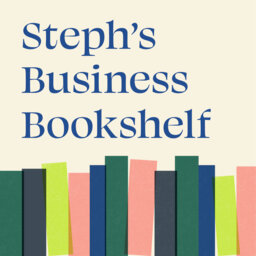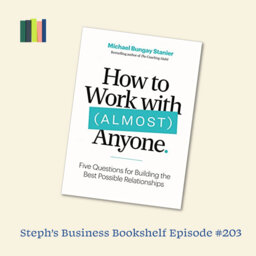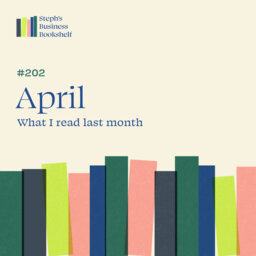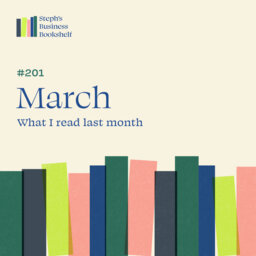I Didn't Do The Thing Today by Madeleine Dore: why productivity is not the meaning of life
About the book
Any given day brings a never-ending list of things to do. There’s the work thing, the catch-up thing, the laundry thing, the creative thing, the exercise thing, the family thing, the thing we don’t want to do, the thing we’ve been putting off (despite it being the most important thing). Even on days where we get a lot done, the thing left undone can leave us feeling guilty, anxious, or disappointed.
After five years of searching for the secret to productivity, Madeleine Dore discovered there isn’t one. Instead, we’re being set up to fail. I Didn’t Do The Thing Today is the inspiring call to take productivity off its pedestal — by dismantling our comparison to others, aspirational routines, and the unrealistic notions of what can be done in a day, we can finally embrace the joyful messiness and unpredictability of life.
For anyone who has ever felt the pressure to do more, be more, achieve more, this antidote to our doing-obsession is the permission slip we all need to find our own way.
Source: https://extraordinaryroutines.com/book
About the author
Madeleine Dore is a writer and interviewer exploring how we can broaden the definition of a day well spent. For the past five years, Madeleine has been asking creative thinkers how they navigate their days on her popular blog Extraordinary Routines and podcast Routines & Ruts.
She has contributed columns and features to Sunday Life, BBC WorkLife, ArtsHub, 99u, Womankind, Kill Your Darlings, The Design Files, ABC Life and more. Madeleine regularly conducts life experiments and hosts events to explore how creativity isn’t just something we do, but how we approach our lives.
Source: https://extraordinaryroutines.com/about
Big idea #1 — Be a day artist
One of the underlying ideas is this concept of being a ‘day artist’, or seeing each day as a work of art. Being creative, rather than doing creativity in how we live. This means being creative with the elements of a day, even when that day doesn’t go to plan.
There’s a nice quote in the book from Helena Bonham Carter that says;
“Everything in life is art. What you do, how you dress, the way you love someone and how you talk, your smile and your personality, what you believe in and all your dreams, the way you drink your tea, how you decorate your home, or party ,your grocery list, the food you make, how your writing looks, the way you feel. Life is art.”
It’s a great reminder that we get to choose how to live. It’s quite a freeing idea. Taking this approach involves a little bit more play, and wonder and curiosity.
Maybe you don’t start the day by ‘eating the frog’ or doing the most unpleasant thing first, but maybe you start the day with something that’s pure pleasure instead. There’s a fantastic example in the book, about a chef who starts the day with a bowl of porridge with a dollop of clotted cream on top, along with some brown sugar, and he just thinks that’s the best way to start the day because by breakfast, he’s already won the day! A perfect example of prioritizing delight over dread.
Being a day artist might mean making changes to your environment, having a corner of a room dedicated to reading, for example. It doesn’t need to be that you need lots of extra space, but maybe you just use your space differently. There’s example in the book from Austin Kleon, who talks about having a really clear, crisp, clean work area with his computer where he writes, but then a really messy desk, which is where he does all his messy collage work.
It means letting go of expectations, or at least holding them much more lightly and letting things surprise us, which can then allow us to explore what we really want, not just what we think we “should” be doing.
Now, we can’t seek constant novelty in life, but we can be much more attuned to it and leave space for surprise, even if it’s just for an hour or 10 minutes in our day.
Big idea #2 — Embrace the wobble
There’s lots of wobbling in our days. Maybe something takes longer than planned, or there’s a distraction, an interruption, or a drama. Whatever it might be, embracing the wobble means that we might need to find ‘puddles’ of time, rather than needing perfect blocks of uninterrupted time in order to get things done. It’s more about self-awareness, than self-regulation, which a lot of productivity guidance can be a bit heavy on.
Wobbling is a constant adjustment, we’re constantly twisting and turning and balancing and bumping into things. But berating ourselves for our inconsistency takes up the precious time that we’re telling ourselves off for wasting in the first place. There is no dress rehearsal in life, this is it.
Maybe we need to stop letting ambition get in our way. Sometimes ambition can be a good thing, but sometimes it can be a pursuit of recognition from others, rather than a focus on doing things that we want to do. It’s obviously not all bad, but maybe being more micro-ambitious, a term that she took from the wonderful Tim Minchin, is a healthier and more flexible approach that allows us to focus in what’s in front of us, in the present instead of what’s next.
Big idea #3 — Kindness over busy-ness
None of us need telling twice about the modern scourge of busy-ness. It’s such a barrier to connection and it’s a fast track to burnout.
Kindness, Madeleine says, is the antidote to burnout. Kindness with ourselves and with others. Whether that’s a chat with the person serving you at the post office, or making a donation to charity, or texting a friend to say hi, incorporating a bit more kindness into our days, rather than busy-ness, can be a nice way of slowing down and remembering what’s important.
Kindness extends to ourselves by knowing that rest is not a bad thing. Hobbies don’t need to be a side-hustles, and we can challenge all the things we tell ourselves that we should do. Otherwise it’s easy to find ourselves too busy to actually enjoy life. There’s a really nice analogy in the book of being like a sponge. Sometimes we’re in absorption mode soaking up, resting, learning, taking in knowledge etc, but too long in absorb mode will leave us kind of sodden and a bit soggy and wet. So we need to be squeezed. We need a bit of pressure to balance us out.
Ultimately, Madeline says;
“Maybe we can’t expect to enjoy every day, but we can find it endearing. When we reach the end of the day, instead of berating ourselves, what we did or didn’t do, we can be charmed by the ordinary moments of living and what our days can bring.”
Which I think is a rather nice way of thinking about life.
 Steph's Business Bookshelf
Steph's Business Bookshelf


